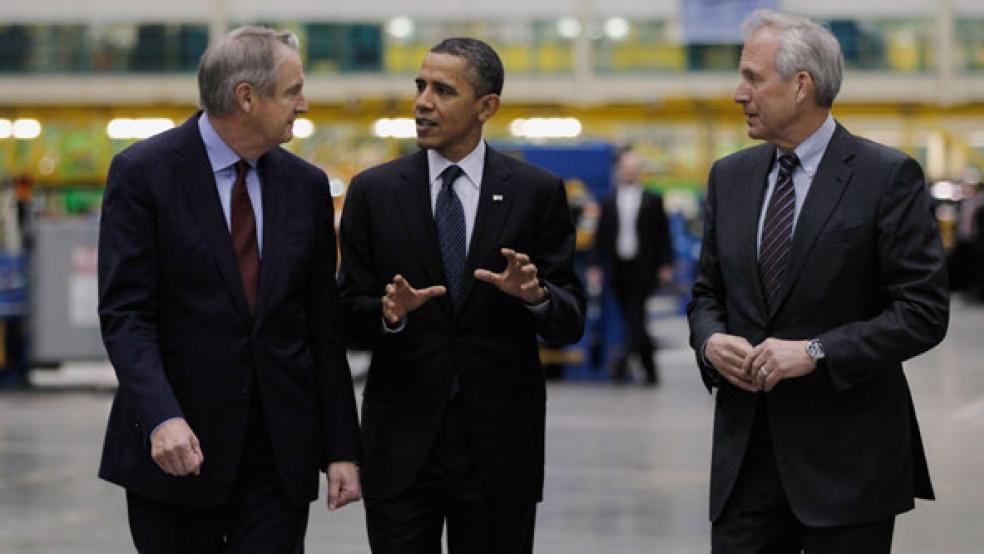A group of high-profile corporate leaders urged President Barack Obama and congressional leaders on Tuesday to reach a "principled compromise" on U.S. fiscal policy that includes higher tax revenues and spending cuts.

The chief executives sent a letter under the umbrella of the Business Roundtable, a non-partisan group that promotes the interests of American businesses.
The intent is to persuade both sides to make compromises to reach a deal before the year-end "fiscal cliff" of automatic tax increases and spending cuts kick in with the potential to cause a recession.
"For far too long, political paralysis has fueled global uncertainty that discourages businesses from investing and hiring new workers," the CEOs wrote. "This paralysis must come to an end, and in a way that resists the temptation to declare winners and losers."
Talks between Obama and House of Representatives Speaker John Boehner, the top Republican in Washington, are making little visible headway with three weeks to go until reaching the fiscal cliff.
RELATED: Cliff Talks: All Talk Could Still Lead to No Action
The business leaders called on Congress to agree to steps to increase revenue but did not take sides on whether this should be by increasing tax rates on the wealthy as Obama prefers or limiting tax deductions as called for by Republicans.
They said a compromise should include "larger, meaningful structural and benefit entitlement reforms and spending reductions."
"By initiating these reforms simultaneously, and without undermining the broader reforms both parties believe should be pursued, you can rebuild the trust needed for our political system to function and the confidence needed for businesses to invest in new factories, equipment and employees," they wrote.
Dozens of high-profile corporate chiefs signed the letter, including Jim McNerney, chairman of the Boeing Company, and Andrew Liveris, chairman of the Dow Chemical Company. The companies involved represent more than $7.3 trillion in annual revenues and more than 16 million employees.
They said they believed the United States will suffer significant negative economic and employment consequences for going over the fiscal cliff.
"In many cases the damage will be long-lasting, if not permanent. But it does not have to happen," they wrote.




